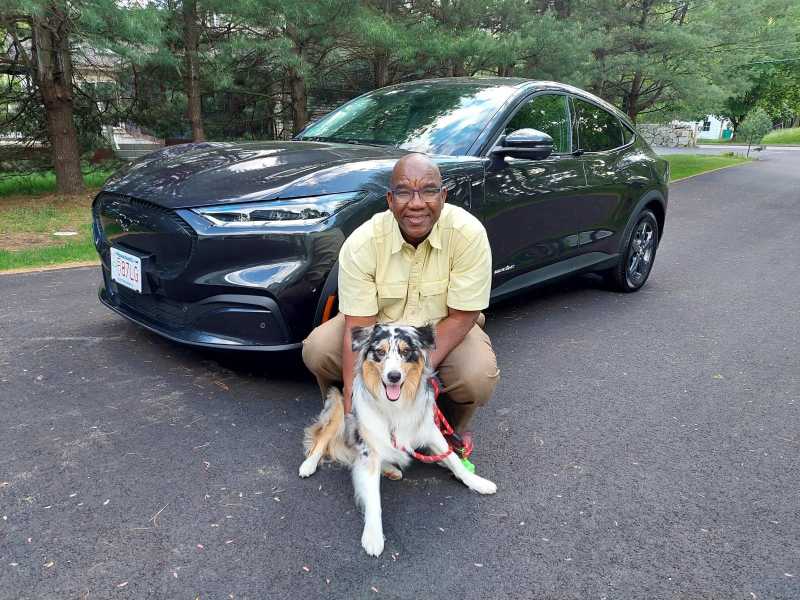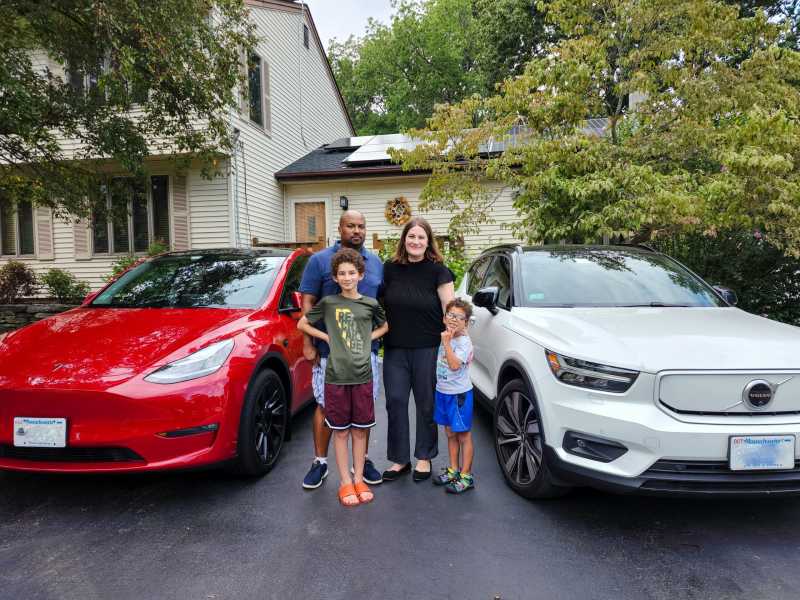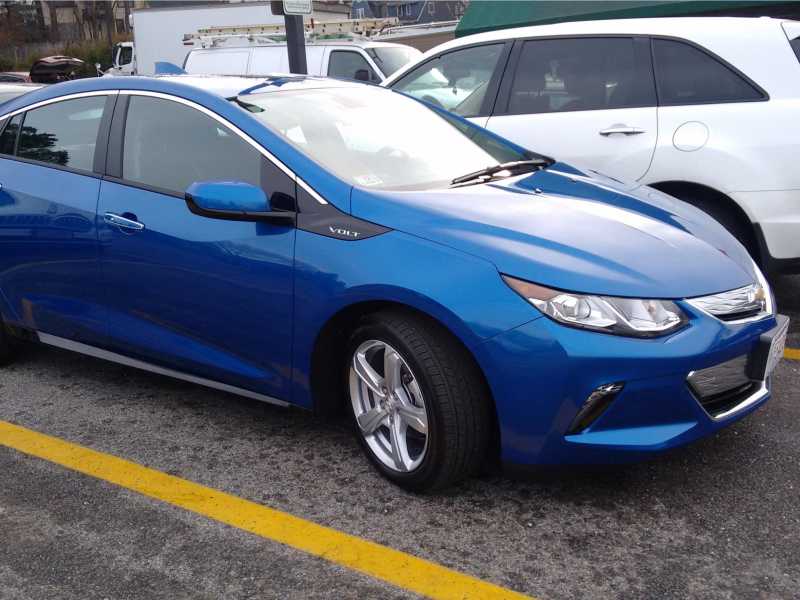Are there electric car tax credits or rebates that I can take advantage of?
Yes. There is a federal tax credit of up to $7,500. Massachusetts and Rhode Island both have their own state rebate that can change from time to time. To learn more, click here.
Why is driving an EV better for the environment?
EVs use energy more efficiently, and the sources used to produce electricity are cleaner than burning gasoline. Learn all about EVs and the environment on our Environment page.
What are the emissions impacts of EVs when compared to conventional cars?
EVs substantially reduce emissions per mile driven compared to gas-powered cars. Switching from a gas-powered car to an all-electric vehicle charged on the grid in New England cuts vehicle greenhouse gas emissions by more than three-quarters. In addition, it substantially reduces the localized air pollution that harms people's health. Learn all about emissions on our Environment page.
How do I charge an electric car?
Every electric vehicle has a built-in charging port that is compatible with a regular household outlet -- exactly like charging a smartphone. You can also install faster charging at home or charge at public charging locations. For more information, read our charging pages.
How will charging an electric vehicle affect my electricity bill?
It depends upon how much you drive, but in general your electricity bill will go up by less than your gasoline bill will go down. Learn more about consumer savings here.
What if I run out of power on the road?
Electric cars have accurate range estimators to let you know how many miles you have on the charge. At this point, most electric cars have well over 200 or 300 miles of range, and there is more public charging than most people realize. If you were to run out of charge, you could get a tow to the nearest charging station.
What servicing do these vehicles need?
Electric cars are lower maintenance than gas cars. EVs occasionally need a tire rotation, battery inspection, brake fluid flush, and in- cabin air filter replacement. Overall, you can expect to cut your maintenance and repair costs for your vehicle in half.
What happens to driving range during the winter?
Range does go down during very cold weather. But there are tips and tricks you can use to minimize range loss. You can learn more about driving an electric vehicle in winter here.
Is it more expensive to insure an electric vehicle?
No, but you can check with your insurance agent to get further assurance.
What is the difference between a BEV, a PHEV, and an HEV?
Learn about BEVs, PHEVs, and HEVs on our What is an EV page!
How are the minerals for electric car batteries sourced?
There is more information on this topic on our blog: greenenergyconsumers.org/cobalt and also here: ev-battery-recycling-fact-sheet.pdf (ucsusa.org)
What is Drive Green?
Our Drive Green program makes it easier to research and choose an electric vehicle. We’ll meet you where you’re at, whether you’re learning the basics or ready to make the switch. Attend an event or visit our website for details on charging, climate impacts, incentives, and more. Plus, with the EV Finder, you can compare new or used electric vehicles and visualize the savings from federal tax credits and state rebates.
How do I participate?
- Browse "Learn more" for detailed information hot topics like charging, costs, and rebates.
- Use the free EV Finder to find the right electric car for you with absolutely no obligations or sales pressure. You can even choose to receive email updates about the cars you like!
- Visit "Get involved" if you want to volunteer with Drive Green, attend an event, or join our newsletter or community groups.


